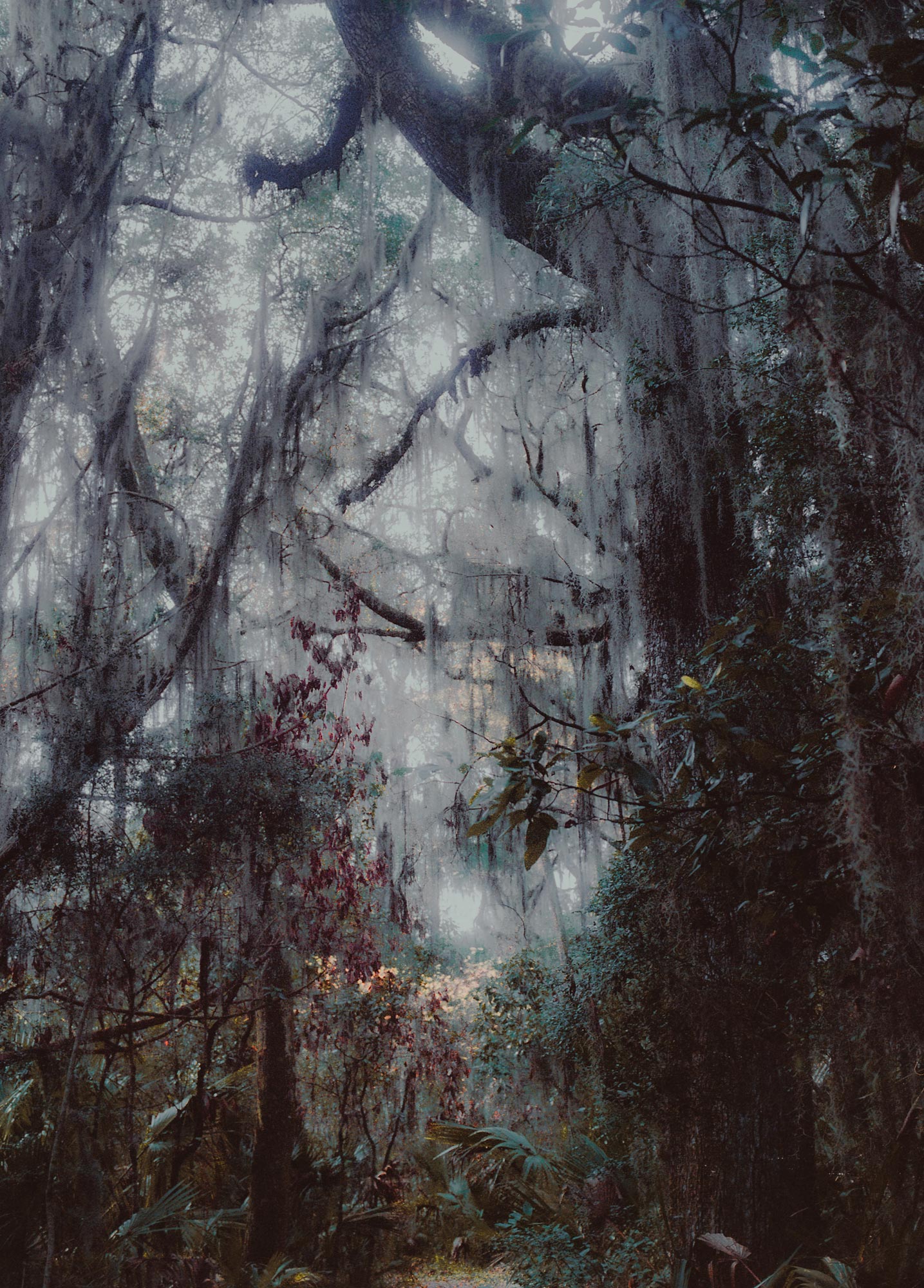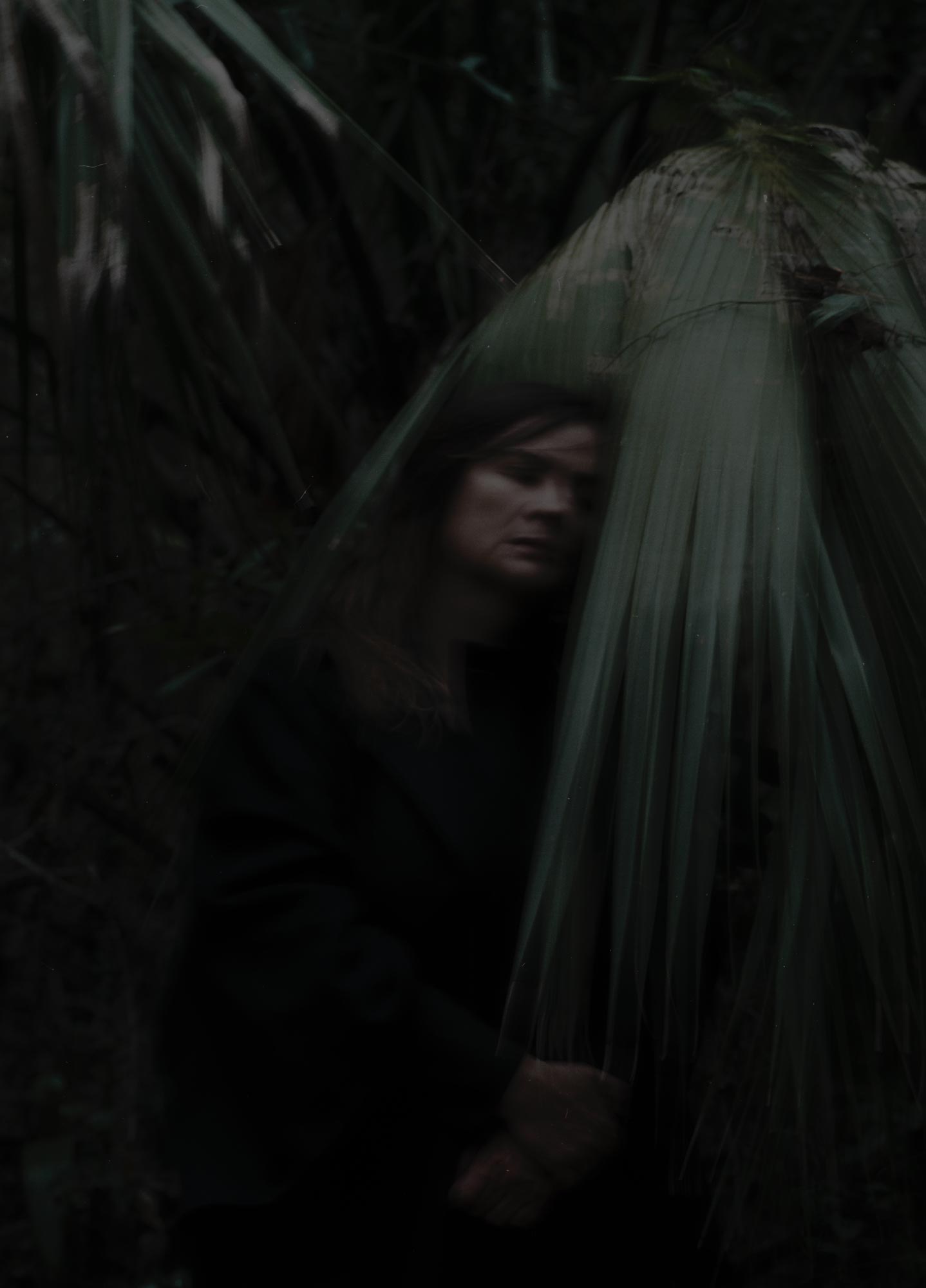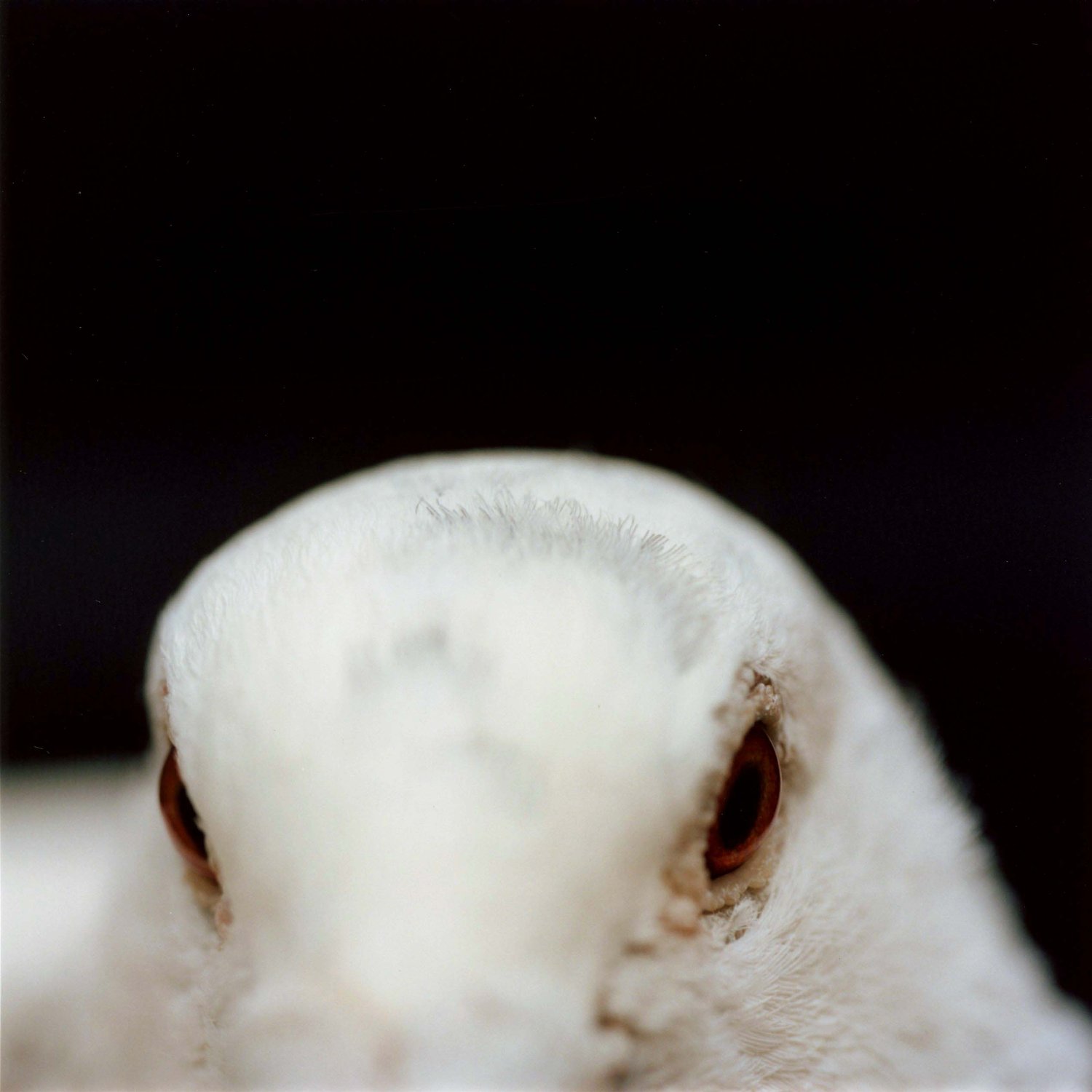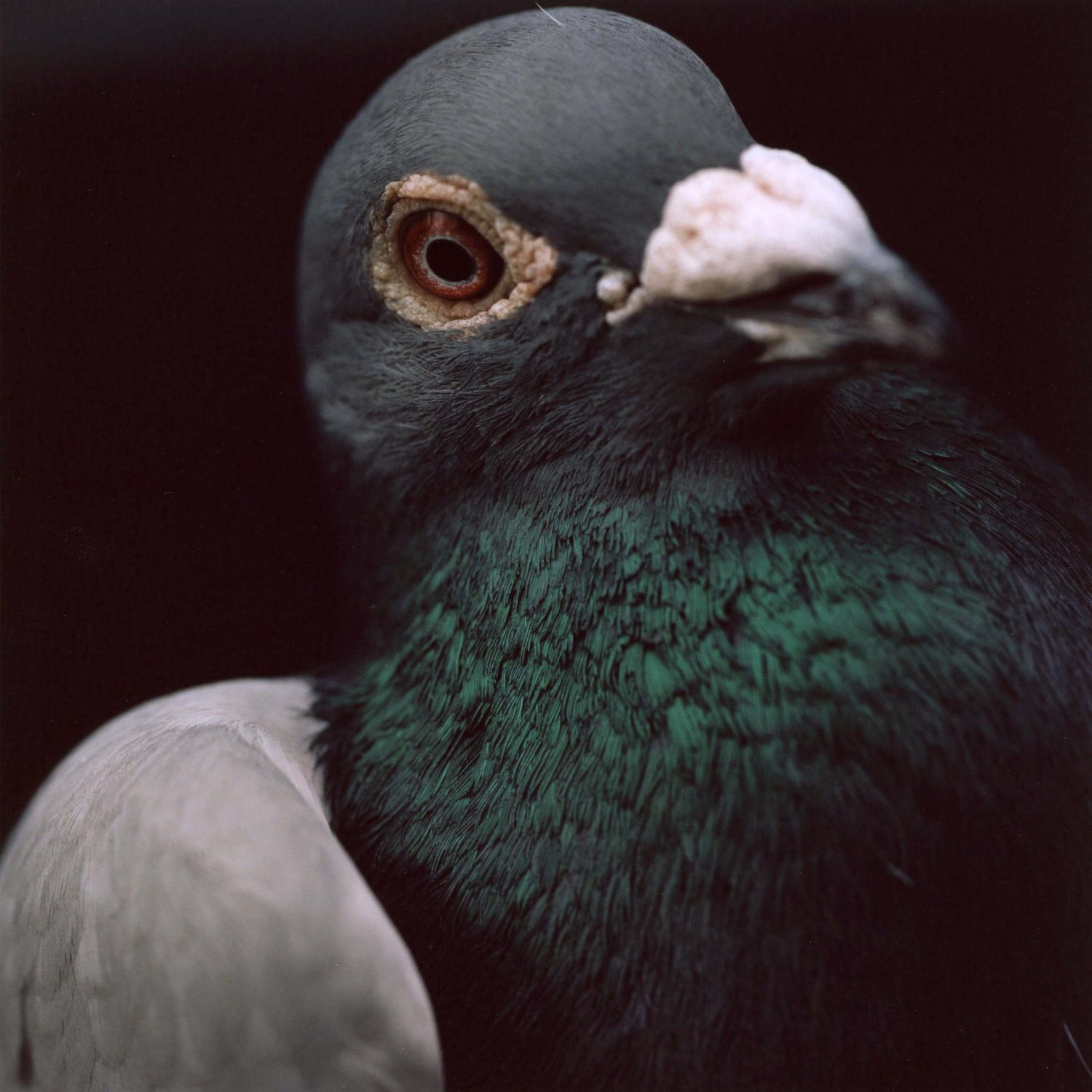©Steven Dowie
Falmouth University’s 120-year legacy is maintained through online courses, allowing emerging photographers to participate flexibly and flourish from any territory
The four modules taught over two years on the university‘s online MA Photography degree provide creative margin for students to experiment and take risks in their photography. Lecturers with industry experience provide guidance and oversee projects for the master’s, helping students develop and strengthen their individual perspectives. Course leader Jesse Alexander notes that the programme “can help someone transform their practice, and their outlook on the medium, in a relatively short space of time”. The curriculum leads to a Final Major Project, in which students distill the ideas they have learnt into a cohesive vision with critical depth.
For her Final Major Project, Layla Perchal Neal produced ‘Timucuan – How a Forest Healed a Heart’. In her artist statement, she explained the series is “about grief, resilience and recovery, as seen through my connection to a unique landscape in north-east Florida”. Her struggles were enmeshed in her evolving relationship to motherhood, shaken to its core when she concurrently lost her own child and became a stepmother. As part of her healing journey, she spent time in the unspoiled wetlands of the Timucuan Ecological & Historical Preserve on the Atlantic Coast. Lingering there provided “a reminder of the restorative bond with the sacredness of the natural world”. Neal’s depiction is a dreamy apparition: arched branches, sylphlike leaves and eerie light poetically encompass the lush terrain. Texturally, the images evoke Impressionist paintings in their hazy beauty.


Chiara Bellamoli, a student in the same cohort, also explored the restorative power of nature, but from a very different angle. Bellamoli posed the question: Would you give up your house to live in a mobile home? – and followed a handful of women who have done just that. The photographer notes in her accompanying text for ‘Freiheim’ – from the German words ‘frei’ (‘free’) and ‘heim’ (‘home’) – that “contemporary nomadism is growing in Europe, inspired by concerns that are as much sociopolitical as existential”. Attentively and sensitively, she photographs women enjoying downtime in their mobile homes and driving through transient landscapes. Within a capitalist society that encourages overconsumption, and a housing crisis paralysing many, these women (of all ages and from varied backgrounds) embrace a radical lifestyle choice, shrugging off property and possessions to find a renewed connection to the wider world. Bellamoli strives to represent life on the road authentically, photographing at different times of day and using windows and doors as framing devices.
By contrast, Steven Dowie’s Final Major Project is focused on another species altogether. Completed in 2022, ‘The South Road’ is a documentary survey of the world of pigeon-racing in the southwest of England: his work introduces viewers to the little-known domain of the pigeon fancier. In addition to examining the relationship between humans and animals, he implicitly addresses themes of national identity since pigeon racing (long practiced in the country) today has been impeded by Britain’s exit from the EU, thanks to new regulations surrounding the transport of birds into France, Belgium, or Spain. His images include close-ups of plumage and zoomed out photos of silhouettes in the sky, covering the scope of the creatures on land and in the air. The humans clutching the birds show a fondness for an otherwise unappreciated urban animal whose presence is not much appreciated.


Beyond the Final Major Project, Falmouth University’s programme equips students to thrive outside the parameters of academia. As Alexander says: “It’s exciting to have the opportunity to immerse yourself in your practice… and figure out what you really want to make work about and do with your photography – what you want it to contribute to the world.” That sense of fulfilment took a feminist bent for two graduates from Falmouth’s online master’s, Emma Davies and Philippa James. Helping reframe photographic history, the duo organised a pop-up reading room called ‘Women and the Photobook’, designed to spotlight female photographers. Spanning Sophie Calle, Lee Miller, Julia Margaret Cameron, and other icons of the medium, the pop-up – held at the Bodleian Libraries in Oxford during the Photo Oxford Festival – enabled visitors to sit, browse comfortably, and access new references. The success of the project spurred other iterations, with reading rooms opening in London and Bristol.
Graduates and students from the programme have also gone on to receive acclaim for their work. Current student Natalie Persoglio won the 2024 Emerging Artist Award at The Photography & Video Show: an annual event drawing in professional photographers, film-makers, content creators and image-making industry representatives at Birmingham NEC. She began her photographic practice with a Kodak Pocket Instamatic as her first camera. Street photography, live gigs and festivals across the UK have been recurrent throughout her work. The awarded series was ‘Last Bus Home’ – part of her Falmouth University master’s project – which surveyed loneliness in urban space. Persiglio incorporated slow shutter speeds while taking candid shots of people commuting on public transport.
“Developing your critical acuity makes you more capable of engaging positively with all aspects of society and culture”
Despite the current economic climate, many photography students are carving out professional pathways. Alexander notes: “It’s hard to avoid slipping into cliches like ‘these are really challenging times for photography’, but the reality is that photography has been at the forefront of how people choose to represent things since the mid-19th century”. Photography’s role has only become more central, with image literacy increasingly essential to decoding our day-to-day life.
Beyond becoming an accomplished photographer, the master’s degree at Falmouth University provides students with skills that go beyond image-making. As Alexander remarks: “Developing your critical acuity makes you more capable of engaging positively with all aspects of society and culture.” Honing nuanced perspective is a much-needed tool, crucial for the photographer as much as a person reflecting on the world around them.
Falmouth University is delighted to offer 1854 members £1000 tuition fee discount on all online master’s degrees including MA Photography (Online) at their esteemed Institute of Photography. 1854 members can also benefit from 10% discount off eligible Falmouth University short courses including all Adobe Certified Professional (ACP) training.
T&Cs apply. Contact Falmouth University for more details.

